#Karl Schroeder
Text
1900s futurism

I'm on tour with my new, nationally bestselling novel The Bezzle! Catch me in TUCSON (Mar 9-10), then SAN FRANCISCO (Mar 13), Anaheim, and more!

I'm profoundly skeptical of the idea that the future can be predicted, and doubly skeptical that sf writers are any kind of prophet. The former grotesque fatalism (if the future can be predicted, then what we do doesn't matter); the latter is tragicomic hubris.
If you'd like an essay-formatted version of this thread to read or share, here's a link to it on pluralistic.net, my surveillance-free, ad-free, tracker-free blog:
https://pluralistic.net/2024/03/07/the-gernsback-continuum/#wheres-my-jetpack
That said, few people have been more consistently useful in understanding and anticipating (and yes, building) the future than my friend and colleague Karl Schroeder, whom I've known since I was 16 years old. Karl was the first person I heard say the world "internet." Also: "fractal," "World Wide Web," "ftp," and numerous other touchstones of the future just over the horizon.
Karl is, in fact, a futurist ("foresight consultant") who approaches the work with the same shrewd insight, wild imagination and humility that he brings to his fiction. In a new essay written with both his futurist and sf writer hats on, he nails down the toxic shadow cast by the 20th century sf, or, as he calls it, "The Science Fiction of the 1900s":
https://kschroeder.substack.com/p/the-science-fiction-of-the-1900s
Karl starts by describing the odd "double vision" of the future of the 1900s. On the one hand, many of us (myself included) were convinced that nuclear armageddon was inevitable. Unlike the unhinged architects of the nuclear arms-race, realists understood that a nuclear war would effectively end the future. As Einstein put it, "I know not with what weapons World War III will be fought, but World War IV will be fought with sticks and stones."
But the flipside of that certainty that the future would end with the first nuclear strike was the belief that if we could just somehow walk the tightrope over the chasm of nuclear holocaust, we'd emerge in a future worth looking forward to: "a new era of peace and prosperity for all."
Contrast that with the existential dread of today's polycrisis: environmental collapse and political decay up to and including fascism. These aren't the binary proposition of nuclear annihilation vs Utopia – rather, they're a continuum of worse-and-better outcomes of every description. As Karl writes: "It’s not that simple. Our future now is an exhausting spectrum of scenarios, each with its own promise, and its own problems."
For Karl, we have entered a new epoch, but we've dragged in the long-expired way of imagining (and hence creating and navigating) the future with us. What makes this a new epoch? For Karl, it's the kind of future on our horizon. He cites Charles C Mann’s 1491, a superb history of the Americas before Columbus:
https://www.penguinrandomhouse.com/books/107178/1491-second-edition-by-charles-c-mann/9781400032051/readers-guide/
1491 radically reframes "the patchwork of propaganda and inference" that makes up the received narrative of the so-called "New World." It describes a land of flourishing cities, art, science and culture "in the Americas while Rome was just getting its act together." Contact with colonizing Europeans was a disaster for First Nations people, who call this period "The Invasion." It was an epochal break.
Futurism is an inextricably historical discipline. The willingness of some settler-colonialists states to consider this epochal break forces us to reframe our literal place in history, the story of the land under our feet. At its best, this futuro-historical work can begin the long work of reconciliation, as with the Canadian government's promise of $23b in reparations for the First Nations people who were kidnapped as children and sent to murderous "residential schools" before, during and after the Sixties Scoop.
The sf of the 1900s is no longer fit for purpose, if it ever was. It's a literature that was steered by open fascists like John W Campbell, who explicitly saw the literature as a means of inculcating a societal narrative of the triumph of white, corporate technocracy over all other forms of government:
https://locusmag.com/2019/11/cory-doctorow-jeannette-ng-was-right-john-w-campbell-was-a-fascist/
Karl isn't the first sf writer to try to overturn this orthodoxy – indeed, it was continuously challenged by radicals within the field, as with the New Wave, personified by the likes of Samuel Delany and Judith Merril (who both mentored and introduced Karl and me):
https://pluralistic.net/2020/08/13/better-to-have-loved/#neofuturians
The cyberpunks took a good hard run at it, too. For plenty of writers (including me), Bruce Sterling and William Gibson's 1981 story "The Gernsback Continuum" was a wake-up call:
http://writing2.richmond.edu/jessid/eng216/gernsback.pdf
Not for nothing, William Gibson has long insisted that his 1984 classic Neuromancer should be read as utopian: after all, it depicts a future in which the inevitable nuclear war only reduces a few cities to radioactive ash, sparing the rest of the planet.
Bruce Sterling once paid me the supreme compliment of describing a 2003 story I wrote about the ways that algorithms will enshittify self-driving cars as "making everybody else in the business look like they live in a dark basement growing on the mulch from old STAR TREK scripts":
https://craphound.com/stories/2005/10/12/human-readable/
Schroeder – along with today's new radical sf writer cohort – wants to fashion a fictional futurism that is fit for this world and its crisis: "in our modern technological society, science fiction tells us what to spend our time and money on." The fact that our mediocre billionaires are mired in the sf of the 1900s means that we're getting some decidedly old-fashioned futures.
For Karl, Musk is a poster-child for this profoundly conservative, backwards-looking vision: "He’s fighting the intellectual battles of the last century, a 1900s hero dropped into the 2000s with an unlimited budget to reshape the future to fit the era he’s from." Musk's obsessions – "Space flight. Settling Mars. Cyberpunk-style brain-computer interfaces. Artificial Intelligence. Self-driving electric cars. Humanoid robots." – are 1900s science fiction.
Ironically, much of this fiction labels itself "hard sf," despite the fact that interstellar travel is utter fantasy – as is mass-scale, near-term interplanetary civilization:
https://pluralistic.net/2024/01/09/astrobezzle/#send-robots-instead
Karl wants "a future for the 2000s." He points to some efforts to make this happen, like Neal Stephenson's Hieroglyph anthology, edited by Ed Finn and Kathryn Cramer:
https://www.harpercollins.com/products/hieroglyph-ed-finnkathryn-cramer
The "Hieroglyph" is Stephenson's shorthand for a recognizable, tangible, meme-able gizmo or other touchstone for a 2000s-era vision of the future – a replacement for jetpacks and flying cars. Karl's story for the anthology, "Degrees of Freedom," focuses on an abstraction (governance: "the single most important thing humanity can focus its creative energies on right now"), and by Karl's own admission, it's not quite the hieroglyph Stephenson was looking for.
But Karl did come up with a hieroglyph in a later work, the "deodands" of 2019's Stealing Worlds – a software agent "that believes it is some natural system, such as a river or forest, and acts in its own self-interest, that being the preservation and thriving of that natural system":
https://memex.craphound.com/2019/06/18/karl-schroeders-stealing-worlds-visionary-science-fiction-of-a-way-through-the-climate-and-inequality-crises/
(My own contribution to Hieroglyph was very gadget heavy – "The Man Who Sold the Moon," about autonomous lunar 3D printers. It won the Sturgeon Award):
https://memex.craphound.com/2015/05/22/the-man-who-sold-the-moon/
I've been impressed with Karl since the day I met him in 1987. There's no one whose thoughts on the future I'm more interested in hearing. I don't think that's a coincidence, either: Karl is an autodidact who was raised by a Mennonite TV repairman – the first TV repair shop in the Canadian prairies. If you want to understand the future, try being raised by someone who takes that kind of deliberate approach to which technology to adopt, and how.

Name your price for 18 of my DRM-free ebooks and support the Electronic Frontier Foundation with the Humble Cory Doctorow Bundle.

If you'd like an essay-formatted version of this post to read or share, here's a link to it on pluralistic.net, my surveillance-free, ad-free, tracker-free blog:
https://pluralistic.net/2024/03/07/the-gernsback-continuum/#wheres-my-jetpack
#pluralistic#science fiction#futurism#the future#reactionaries#tescreal#retrofuturism#scientifiction#karl schroeder#1491#genocide
122 notes
·
View notes
Text
Tanja: *hums a lullaby*
Romy: Are we supposed to sleep now?
David Korbmann (Count Grünne), Jannik Schümann (Emperor Franz Joseph), Romy Schroeder (Marie) and off-screen Tanja Schleiff (Countess Esterházy) behind the scenes of the second season of Sisi (2021).
#sisi#sisi (2021)#costume drama#historical drama#period drama#David Korbmann#jannik schümann#romy schroeder#tanja schleiff#karl ludwig von grünne#franz joseph of austria#emperor franz joseph#Marie#german series#german tv#behind the scenes#sisi.rtl
9 notes
·
View notes
Text
8 ottobre … ricordiamo …
8 ottobre … ricordiamo …
#semprevivineiricordi #nomidaricordare #personaggiimportanti #perfettamentechic
2017: Gianni Bonagura, all’anagrafe Gianfelice Bonagura, attore e doppiatore italiano. (n. 1925)
2004: Irina Demick, all’anagrafe Irina Dziemiach, è stata un’attrice francese, modella. Spesso accreditata come Irina Demich. (n. 1936)
1998: Gigi Reder, nome d’arte di Luigi Schroeder, attore e doppiatore italiano. è stato un attore e doppiatore italiano. (n. 1928)
1983: Joan Hackett, all’anagrafe…

View On WordPress
#8 ottobre#Eduardo Ciannelli#Fernando Álvaro Lamas y de Santos#Fernando Lamas#Gianfelice Bonagura#Gianni Bonagura#Gigi Reder#Irina Demich#Irina Demick#Irina Dziemiach#Joan Ann Hackett#Joan Hackett#Karl Swenson#Luigi Schroeder#Morti 8 ottobre#Nigel Bruce#William Nigel Ernle Bruce
0 notes
Text
Living things are conscious and therefor orderly.
Things that aren't alive have no consciousness and therefor they are entropic.
Humans can program our conscious desire for order into our tools, machines, robots, and computers. However, without our constant orderly maintenance, entropy pulls our tools, machines, robots, and computers into chaotic disorder and disfunction.
Pop culture and sci-fi often depict robots as orderly and perfect and humans as disorderly and chaotic. This is a reversal of objective reality.
The human cashier is late to work. The human cashier is micro-dosing psilocybin. All of these conscious decisions are orderly. You may not see it up close. But if you zoom out, you'll see it.
The robot cashier is powered on. Ancient entropy pulses through every inch of this object. Entropy is only mitigated by the human cashier watching over the machine and periodically restoring some order.
Human tools are simply objects subject to entropy and these objects are incapable of creating order on their own. Only the intervention of conscious life can create order.
Biodiversity is the most orderly system in the universe. The less biodiversity there is, the more tools and objects are required to maintain the remaining life. The more tools and objects there are, the more sources of entropy into the system.
Human technology is not inherently harmful to biodiversity. As conscious living beings, we are more than observers. We have agency to program temporary order into entropic objects and to observe and understand system science. We need to recognize when the entropy from our tools is overpowering the order of conscious life. We need to do what we can in the short term, mid term, and long term. That's what it means to be alive.
We build a hydroelectric dam to make human life sparkly and comfortable and irrigate delicious plants. We are using this tool to project order into our system. However, our idea of order when we built the dam 80 years ago was incomplete. We did not calculate all the entropy back then. The hydroelectric dam is a giant tool that introduces massive entropy into the system. So in the short-term, we build salmon hatcheries, ladders, and elevators. And we shoot salmon through a cannon over the dam. We sprinkle a bit of biodiversity order into the system. This tiny sprinkle of biodiversity takes thousands of tools and thousands of humans to accomplish.
But if we remove our entropic dam tool, biodiversity order returns immediately without any further effort from humans. Salmon are conscious and living and they have the same inclination for order that we do.
Sci-fi author Arther C Clark says "any sufficiently advanced technology is indistinguishable from magic." But a technology indistinguishable from magic may be highly entropic. If you can't understand the technology, you can't program conscious order into it.
So sci-fi author Karl Schroeder has updated that quote to say "any sufficiently advanced technology is indistinguishable from nature." A sufficiently advanced technology does not add more entropy into the system than the consciousness in the system can counteract.
19 notes
·
View notes
Text
about me!!
my name is lex, i like hockey, soccer, baseball, f1 and football!!
my teams are
- sabres (nhl)
- rangers (nhl)
- penguins (nhl)
- flyers (nhl)
- new york (pwhl)
- london knights (ohl)
- erie otters (ohl)
- regina pats (whl)
- rochester amerks (ahl)
- hartford wolfpack (ahl)
- steelers (nfl)
- yankees (mlb)
- pirates (mlb)
- liverpool (PL)
- red bull (f1)
fav players (nhl)
dylan cozens #24 , kaapo kakko #24, sidney crosby #87, connor bedard #98, evgeni malkin #71, mika zibanejad #93, igor shesterkin #31, john marino #6, jj peterka #77, jeff skinner #53, jordan greenway #12, matt rempe #73
fav players (ahl)
devon levi #27, devin cooley #1, jiri kulich #25, riley stillman #61, brandon biro #10, connor mackey #14, karl henriksson #24, brennan othmann #78
fav players (other hockey leagues)
corinne schroeder #30, alex carpenter #25, ella shelton #17, spencer sova #22, dylan edwards #11, denver barkey #86, oliver bonk #59, ty gibson #6, samuel barcik #24,
socials:
@/24C0ZEYS on twitter
@/thelexienetwork on instagram
@/29fleurys on tiktok
@/weedbrazy on discord
3 notes
·
View notes
Text


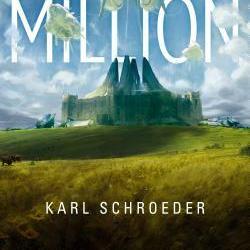

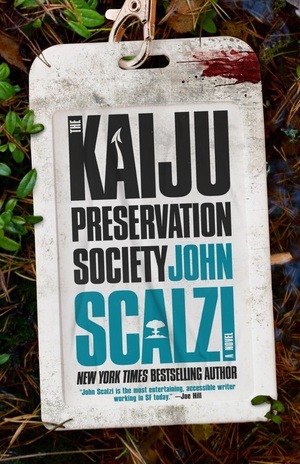
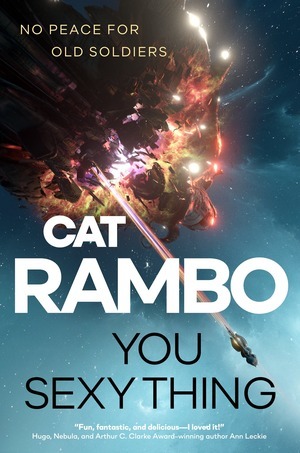
2023 Book Reviews: Science Fiction, Part 1
Third round-up of books I've read this year! This time we're diving into sci-fi, with again a pretty mixed bag (although I loved The Kaiju Preservation Society!)
1. In the Quick by Kate Hope Day: 3/5
Pitch: philosophical SF; girl searches for a missing space ship crew with her uncle's former student
Review: This was recommended to me by the Storygraph algorithm, and it sounded really good! Unfortunately I liked the beginning part of this book more than I liked the end, and two weeks later most of my thoughts were confusion about why the relationships were handled the way they were, and I'd forgotten most of the rest of it. Not a hit, but it had its moments. (Current me stepping in to say that I've almost completely forgotten this now, to the extent that I have no idea what I liked about the beginning anymore...)
2. The Million by Karl Schroeder: 3/5
Pitch: a million people take care of Earth so that every thirty years the other ten billion humans can wake up & party; definitely-not-supposed-to-be-there teen has to solve his "father's" murder without revealing his identity
Review: This was interesting, but it didn't end up being more than that for me. Although I found the concept interesting, I found the ending felt very rushed, and the big character decision didn't feel like it made sense emotionally or that there was enough textual basis to set up it being necessary.
3. The Kaiju Preservation Society by John Scalzi: 4.5/5
Pitch: guy looking for a new job ends up signing up to protect kaiju on an alternate-Earth
Review: In his author's note, Scalzi describes this book as a pop song - catchy and fun - and I'd definitely say that's an apt comparison! I had a great time with this, loved reading it, but I doubt it'll stay with me for a long time. I'm likely to recommend it though on the strength of the worldbuilding and fun science shenanigans!
4. Tell the Machine Goodnight by Katie Williams: 2/5
Pitch: quick fix machine can tell you what you need to be happy - but can it really???
Review: Once again, proof that my taste in books in 2018 is not up to snuff anymore. I had moved this up to the top of my TBR in 2018 and never made it to it, and I finally got around to it, only to be disappointed. This didn't feel profound, just stupid, and while there were a few storylines I enjoyed, there were a lot that I didn't care about or that actively annoyed me. I'm sure the ending for Pearl is supposed to be profound somehow, that everything in this book is supposed to be a meaningful discussion of capitalism or the alienation of man or something but honestly I just couldn't care less. Not my kind of book
5. You Sexy Thing by Cat Rambo: 4/5
Pitch: retired Admiral in sketchy galactic empire just wants to run a restaurant and stay retired, but ends up running for her life again
Review: It's got a fabulous concept, and this was definitely fun - I liked a lot of the characters in this, and I'm looking forward to seeing what happens down the line for them. However, the constantly bouncing perspectives didn't work well for me, and I was clearly supposed to feel more about some of the events of the book than I did, probably because I wasn't attached to the characters as much as I was supposed to. Ultimately, this was fun and I'll definitely read the sequel, but it also isn't a new favorite.
5 notes
·
View notes
Text
Charles Bukowski ¿Las cosas del Maestro “Maldito”?

Heinrich Karl Bukowski, conocido como Charles Bukowski, fue un escritor de relatos, novelista y poeta estadounidense nacido en Alemania, representante del realismo sucio y considerado como un «poeta maldito», debido a su excesivo alcoholismo, pobreza y bohemia
Bukowski escribió libros de diversos géneros, tales como: diarios, relatos, novelas, poesías, ensayos e incluso llegó a escribir Barfly, un guion cinematográfico basado en su alter ego Henry Chinaski, dirigida por el cineasta francés Barbet Schroeder, película en donde realizó un cameo en un bar. Esta experiencia la recopiló en un libro de relatos, Hollywood (1989).
La obra de Charles Bukowski recibió tantas críticas negativas como positivas. Se le acusó de practicar un estilo soez como mero exhibicionismo literario y de reiterar sus obsesiones de modo efectista. Otros críticos, en cambio, realzaron su autenticidad y su condición de escritor maldito
#Heinrich Karl Bukowski conocido como Charles Bukowski fue un escritor de relatos novelista y poeta estadounidense nacido en Alemania#¿Esta es la imagen y algunos datos (O no) la “Historia” la pones tú? ¡La tuya! ¿Lo harás...?
5 notes
·
View notes
Text










5. Květen - Výročí Pražského povstání
May 5th - Anniversary of the Prague Uprising
It is the 5th of May and the Third Reich is in a state of collapse on all fronts, as the Führer has already been dead for several days. However, fighting still continues as Nazi forces continue to resist in the Reich and in the Protectorate of Bohemia and Moravia.
The Red Army - led bravely by Marshall Konev - detaches from the east to Berlin, and then hurries south to Prague. In the West, General Patton's troops advance through Plzeň. The people of Prague are determined to stand up to their occupiers, and preparations for an uprising are underway. Karl Herman Frank, the butcher of Lidice and a loyal National Socialist to the very end, threatens on the radio that any uprising will be drowned in its own blood.
Over the evening of the 5th of May, barricades began to appear in the streets of Prague. The rebels were armored with light weaponry - rifles, machine guns, Panzerfausts, and a determination to fight the enemy at any cost. The Germans attacked these positions with heavy weapons, armor, and even dive bombing runs. In Bohemia at the time, there was a strong Wehrmacht group 'Mitte' under General Schroeder and the SS division Wallenstein preparing for an attack.
The Germans relentlessly attacked these barricades, and were recorded having even used Czech women and children as 'human shields' for their advancing troops. The fighting only intensified at the old town hall on the 8th and the 9th, as the conflict descended into anarchy.
Joining the Czechs was Vlasov's collaborationist 'Russian Liberation Army', defecting from their German commanders to join their brothers in arms. It is necessary to point out however, these units were back then and still are today rightly considered controversial.
The Wehrmacht eventually agreed with the Czech National Council to withdraw from the city, however fanatical SS units continued their fighting and violence against local citizens. The Prague Uprising came to an end in the early hours of the 9th of May, with the arrival of the 1st Ukrainian Front of the Red Army and Marshall Konev, completing the liberation of the city.
In the fighting, about 3.500 partisans, 1.000 liberating soldiers, and 2.000 civilians were killed.
ČEST JEJICH PAMÁTCE! HONOUR AND ETERNAL GLORY TO ALL OF THEM! ✌🏻🇨🇿
17 notes
·
View notes
Link
This summer, experts in fields ranging from astronomy anSymposiumysics to astrobiology, astrogeology, and cosmology all convened at the University of McGill for the 8th Interstellar Symposium: In Light of Other Suns. In partnership with McGill, this event was hosted the Interstellar Research Group (IRG), the International Academy of Astronautics (IAA), and Breakthrough Initiatives. Between July 10th and 13th, students, press, and space enthusiasts attended presentations and outreach events that addressed the big questions on interstellar spaceflight exploration. To learn more, Universe Today sat down with NASA technologist, author, and engineer Les Johnson who attended the event and hosted many of its panel discussions. This included the public outreach event “Interstellar Travel: Are We Ready?” where he and a panel of experts (including Alan Stern, AJ Link, Prof. Philip Lubin, Erika Nesvold, Trevor Kjorlien) discussed the technological, social, and ethical dimensions of travelling nearby stars. He was also a featured guest for the Science Fiction Author Panel where he was joined by fellow SF authors Karl Schroeder, Eric Choi, and Sylvain Neuvel. We covered some interesting topics in a relatively short amount of time. Among them was the rently-released anthology of short stories and essays, The Ross 248 Project, published by Baen Books in May 2023. This volume was the latest in a series edited by Les Johnson and professional engineer Ken Roy (inventor of the Shell worlds concept), to which I had the honor of contributing the essay titled, “”. The following is the transcript of the interview between Mr. Johnson and myself Symposiumliams), hereafter denoted as LJ and M. The 8th Interstellar Symposium was held from July 10th to 13th at McGill University. Credit: Interstellar Research Group (IRG) Matt: Can you give us a sense of the structure of the Symposium? How did things kick-off? Les Johnson: A tradition of the Interstellar Research Group symposia is that we try to have classes before the meeting begins. These three-hour seminars taught by experts in their field are intended for the literate audience, but not necessarily a heavily-technical audience, because we offer continuing ed credits for teachers. So this year, we had three seminars, and they were a fairly good turnout. There was one provided by Laura Montgomery, who used to be a space law person with FAA regulating spaceflight launches. And now she teaches space law. And she did a class all about space law: overview, past, present, and future. And so everything about the Outer Space Treaty, the Moon Treaty, and the new recently passed legislation in the U.S. that lets companies profit from asteroid mining and all that was part of her discussion. And Alex Ellery, who is a professor of aerospace engineering, did a talk on self-replicating technology and how that might lead to space industrialization. So the whole idea of programmable von Neumann machines, though not as microscopic. And then, Brent Ziarnick, who is a teacher at the Air University, that thy have for up and coming air force officers and space force officers, he teaches at that. He’s in the DOD. And he gave a seminar called the “Role of National Space Forces, and Security, Safety, and Prosperity through Space Exploration.” Which was all about how we’re going to evolve the Coast Guard-like aspects of the Space Force to protect the space lanes. So anyway, we had those three seminars that people attended before the symposium actually began. “[I]n space, we run the very real risk that whoever gets there first, that they might set the rules of engagement that other people have to play.” M: Now, in terms of what Brent was talking about, what do you see as the likely threats and scenarios, the things that we need to be discussing today to be ready for tomorrow? LJ: I’ve had a lot of discussions with him about this. And he also wrote an essay for the anthology you and I are in. And he’s also writing a paper on this for a technical anthology that Ken and I are editing for Elsevier. So he’s given a lot of thought to this. And I think the big issue is, if you look at history on Earth, the nation states that are the first to do something set the rules for how the game will be played. So right now, there’s a big issue in the Taiwan Strait about freedom of navigation and what we consider to be international waters, whereas China doesn’t consider it to be international waters. The norm is what the rest of the world currently does, which assumes it’s a free passage in international waters because they were the first to get there. And in space, we run the very real risk that whoever gets there first – wherever there is, whether it be to a certain asteroid to a certain part of the Moon or otherwise – that they might set the rules of engagement that other people have to play by. And so I think one of the things we have to be careful of is making sure that the principles that we tend to hold dear – which are free travel, free expression, equal access to resources – that kind of thing is upheld by law. And part of how you do that is you set the precedent in space. So I think that’s what a lot of his talk probably was about who’s going to be the one to set the norms for how things are done. Artist’s impression of the orbital debris problem. Credit: UC3M M: Yeah, I can see a lot of overlap with what Montgomery was talking about there and from what I’ve learned about space law from the Space Court Foundation and Space Generation Advisory Council. We need to set the precedents and establish rules ahead of time so that we don’t end up trying to figure this out as we go along and having a “Wild West” -type scenario. LJ: Well, plus, from a national security point of view, right now, our Space Forces have a really good handle of what everybody in the world is doing in LEO, MEO, and GEO because we have spacecraft there that are watching everybody, and we have the capability from the ground to look up and watch everybody. And we know what everybody’s doing. Right now, in cislunar space, that capability doesn’t exist. And there is a Chinese lander on the lunar farside right now that we don’t have a clue what it’s doing. And I’m sure that’s causing great consternation somewhere, not that it’s necessarily anything more than just a science mission, and they’re just doing science. But that’s not the point. The point is, there’s no way to confirm that’s what’s happening. And nobody really knows that that’s what’s happening. So you have to ask the question, “Hmm, how are we going to fix that problem?” And I’m sure that’s something that’s high on the list for the Space Force people. M: Alex Ellery and I have actually talked when I did an article on his work, and I immediately tried to rope him into doing a podcast on Von Neumann Probes. And he agreed. It helps that he’s a professor at my alma mater, Carleton University. I saw that Frank Tipler was there too. LJ: Oh, that was great. I had a great time talking to him. I have some of his books that he autographed. I was a fanboy. His talk was a great way to start the symposium because he thinks big. Right. And his claim to fame, the whole Omega Point thing, and the fact that he believes that he has shown through the fundamental laws of nature that there will be a point in the future when we’ll be able to simulate the Universe and recreate everyone whose ever lived and ever will live and can live for eternity in that future. And the fact that we exist now, he has a mathematical way of showing that that’s proof that we’re going to be successful in the future. And I have to admit, I didn’t really fully understand all of it. But he is really big on basically not just anti-matter, but this whole notion of how we understand the Universe and what that tells us about how the future clock of the Universe is going to unfold. And it was a really upbeat, optimistic, but incredibly technically detailed presentation. So I can’t do it justice in explaining it because I think there’s only one Frank Tipler. It was really a nice optimistic way to kick things off. The next talk was given by another person you probably should talk to, Joseph Gottlieb, who gave a really nice humanities paper on the ethics and morality of, “Should we explore space?” And he really delved down into the questions of, “Do we as a species have a right to export our species elsewhere? What’s the basis by which we’re going to make the decisions regarding that? And what are the philosophical presuppositions that go into that whole discussion?” And his bottom line was “yes.” But he also made a point that there are other people out there that are of the belief “maybe” and some that are “no,” right? So there are different [opinions]. I’m not surprised there’s disagreement, but he makes a pretty compelling case in his presentation and in his paper that there is a good philosophical basis for space exploration and the expansion of the human species into space. So pretty cool stuff. It was very down to Earth after Tipler. (laughs) Artist’s impression of the proposed Solar Gravity Lens telescope. Credit: The Aerospace Corporation M: (laughs) Yeah, “let’s get back to things that are a little more… now!” LJ: Yeah. Well, even stuff that was far out [like Claudio Maccone]. I’ve known Claudio Maccone for 20 years now. He’s the one who really – he and Greg Matloff are the ones that really got me sucked into the interstellar community. And Claudio is a mathematical savant. I mean, he’s just amazing. But his whole thing now is this whole gravitational lensing for communications and for looking at exoplanets. Now, you may have heard of the work that Slava Turyshev is doing at JPL on the exoplanet imager at the Solar Gravity Lens. Do you know anything about that? M: Yeah. It was a little while ago, but I do remember that – basically, using the Sun as a gravitational lens to image exoplanets that would provide insane resolution? LJ: Right. Yeah, there were two people at the conference who talked about that. One was Claudio, and the other was Victor Toth, who is actually a part of Slava’s [research]. He gave a talk in the afternoon, “Look before you leap: using the solar gravitational lens to explore exoplanets.” That’s where he really delved into the whole exoplanet imaging kind of thing. Claudio actually talked about using it as a communication system, kind of the Galactic Internet. He says that what we need to do if we’re going to send a colony or a settlement ship to Alpha Centauri, and we want to have high-bandwidth communication from there to home, you can’t do anything about the speed of light with the lag time. But you can sure do something about getting the communication strength up. So you have high bandwidth because bandwidth is determined by the size of your antenna and the size of your receiver, and the power of your transmitter. And it turns out that not only does the Sun act as a gravity lens for light, but it also acts as a gravity lens for radio. We shouldn’t be surprised because both are photons, right? They’re just different energy. So if you take a spacecraft with an existing transmitter that’s not gigawatts but might be hundreds of watts, and you put it at the Sun’s gravity lens point that aligns with Alpha Centauri. And you put another one in the Alpha Centauri system so that it’s at the point where it looks back at Sol (our star). You have two nodes. And then you send whatever data at Alpha Centauri that you want to send back to Earth to the Solar Gravity Lens satellite that they have. And then they use this very modest transmitter to send it back or back to Earth, and the Solar Gravity Lens focuses all that energy back onto our receiver. So you no longer need a gigawatt transmitter to get high bandwidth. You can do it with just a conventional few 100-watt spacecraft transmitters. So it’s sort of the equivalent of imaging, but you’re doing it with radio, and you have a communications network. And Claudio postulates that, given the amount of time that the Universe has existed and how long it takes spacecraft to travel these distances, even if we have cultures that are spreading throughout the galaxy at some small fraction of the speed of light, they’ve had a long time to do it. The reason why we may not be picking anything up on SETI is because these different civilizations are all talking to each other from the gravity lens point. And there’s no leakage. And in order to join the network, you have to get one of them to recognize that you’re there and beam something to your surrogate Solar Gravity Lens region. So it’s potential that we could send a probe to the Solar Gravity Lens with a radio tuned to SETI frequencies and suddenly find out there’s somebody else out there. And Claudio really developed that mathematically and did a very, very nice job. Showing that it’s not only possible but how it could change our paradigm of doing SETI and how there might actually be a galactic internet that we just haven’t got a cell phone to tap into yet. So that was one of the more mind-expanding lectures of the morning. The 8th Interstellar Symposium was held from July 10th to 13th at McGill University. Credit: Interstellar Research Group (IRG) M: The event you were part of, “Interstellar travel, are we ready?” There was a lot of “who’s who” there. Right off the top, Alan Stern and Phillip Lubin were both there and bringing quite a bit to the table. And you yourself, you were hosting? LJ: Yeah, I introduced all the panelists: AJ, Allen, Phillip, and Erica. And then Trevor was like the MC. He’s apparently a popular host in Canada, and he does this kind of thing all the time. He’s witty and personable, so he interacted with the audience and had a list of questions. And we on the panel kind of batted around the answers. Some were specific to us, and some were general. And it all centered around this notion of – “How do we plan for something that’s far out?” “Why are we doing it?” “Can we really afford to do it?” And, “What’s the scale that it will be?” And there were differences of opinion. We had a few points of disagreement, notably between most of us and Philip Lubin. Phil had just done a recent cost analysis, just in energy costs, of how much it would cost to send an interstellar ship. And that caused quite a discussion. Because I personally, I think it’s an irrelevant number because by the time we do this, what is the energy price going to be? And what is money going to be? So there are some definite differences. Erica and AJ really brought the perspective of “Who’s going to go?” and “How do we decide who goes?” and “How do we make this community less ‘pale, male, and stale’?” which I thought was very valuable. Erica [is] a successful social media podcaster kind of person, and AJ is really big on working to get diversity into space, and the space thinking, and space workforce. So it was, it was really a nice interplay between technical, social, and political kinds of discussions, and it was the most well-attended public outreach event we’ve ever had. The audience had over 400 people in it. So it was really awesome. Yeah. M: Was there any consensus when it came to this event? Was there any sense of, “Yeah, we think we are,” or “We’re gonna have to wait and see,” or…? LJ: No, we’re not ready (laughs), and it’s technology that’s the prohibitor. We’re really not ready technologically. But we did conclude that being ready, at least for small robotic missions, is within reach. With the work that Breakthrough Starshot is doing and the spin-offs that might come from that, we all kind of envisioned that it might be possible to send a robotic probe within the next 100 years, give or take. So we’re not as far away from being able to do that as I thought we were when I began my career and looked at interstellar stuff like 20 years ago. I was thinking it was 200 to 300 years. We might actually be within 100 years of our first robotic probe, which is amazing. So the answer is, “Technically, we’re ready.” I think AJ and Erica might take issue with us being socioeconomically, sociologically, and psychologically ready. But that’s an important question, “Are we as a culture ready to do this?” And I think there’s some legitimate debate to be had here. Project Starshot, an initiative sponsored by the Breakthrough Foundation, is intended to be humanity’s first interstellar voyage. Credit: breakthroughinitiatives.org M: I was wondering about that very thing. I would assume the psychological and sociological impacts that such a mission would have had to have come up. So, did they [say] we’re ready that way, or they do they not believe [we are]? LJ: They believe we’re on a path to being ready and that we should try to do it. They were not negative. They were questioning our readiness today but not doubting that we will if that makes sense. M: Perfect sense. And so, the thing that we’re not ready for, I take it then, is we cannot foresee crewed interstellar missions within our lifetime. There’s like a lot to work out there? LJ: Well, here’s where you have to be real careful. There were a lot of students in the audience who are 40 years younger than me. So when we say our lifetime, whose lifetime are we talking about? In my lifetime? No way. Robotic missions in my lifetime? No way. Robotic missions in the lifetime of a baby born today? Maybe. I don’t think a 40-year-old is gonna see it. I think a two year old might. M: Well, that counts me out. LJ: Sorry (laughs) M: I should point out that they’re doing a lot of good work in longevity cures these days. So, I wanted to definitely get into the science fiction panel. And it was you, Karl Schroeder, Eric Choi, Sylvain Neuvel? LJ: They’re all Canadian science fiction writers except me. And Karl Schroeder has written quite a few. He’s written a lot more stuff than I knew about. And I saw it, I really, I’m going to read some of his stuff. Now. We had side discussions because he and I have a common interest in developing planetary sunshades to mitigate climate change, and he and I’ve been talking about that offline. But this panel is centered a lot in a direction that I kind of inadvertently, well, probably not inadvertently. I did steer it that way, a bit, maybe a bit too much. And that is how science fiction has changed. It used to be optimistic. And today, it’s very pessimistic and dystopian. And why? What does that mean? And is that a good thing or a bad thing? And or is it something we ought to try to change? And we had a lot of audience interaction with the younger people. And there are quite a few younger people at this meeting, more younger people than we’ve ever had, who were explaining why they think dystopian. And then me and Carl and the others telling them, “Well, your generation has challenges like every other did. Roll up your sleeves and get busy, right?” And we all agreed that the tone of the literature can set the tone of the culture and that it’s been negative for too long. The pendulum needs to swing back to people writing about futures where we can actually solve our problems. And so we had a lot of discussion about that, not a lot about the writing process or what it means to be a writer. We did talk about some of our works, but it was primarily the philosophy of directions of where we are in science fiction. The Ross 248 Project, by Les Johnson and Ken Roy (eds.) Credit: Baen Books M: Well, that certainly sounds interesting. So was that sort of the main subject, the tone of science fiction today versus [the past]? LJ: That’s how it ended up being. There were other questions asked, but most of them centered around that, and that’s what got the most audience interaction. M: During your panel and also the public outreach event, did The Ross 248 Project come up? LJ: Oh, yeah. I made sure it came up. It came up in the science fiction panel, and they had 10 copies of the book for sale in the room. And they sold out. I wish they’d had more. I think they could have sold twice that many. So yeah, I did. And a lot of people who said they couldn’t get it told me they were going to order it. So I think they will. Yeah, came up. Are you kidding? I had a copy up there with me! (laughs) M: I wish I could have been there. I’d have brought my copies too. LJ: Well, our next meeting will be in Houston. And June of 2025. M: I think my schedule is clear. (laughs) LJ: Believe it or not, I had to put it on mine to make sure it stays clear. M: Les Johnson, thank you so much for joining us, and best of luck with your future endeavors. The post Universe Today Interviews NASA’s Les Johnson About the 8th Interstellar Symposium appeared first on Universe Today.
0 notes
Text
This day in history
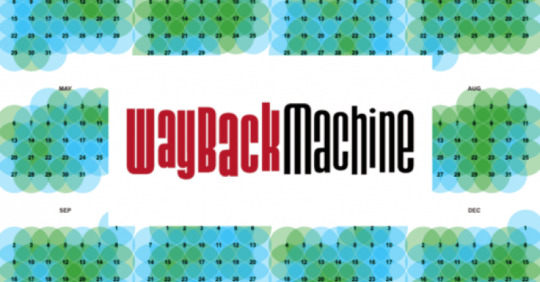
I'm kickstarting the audiobook for "The Internet Con: How To Seize the Means of Computation," a Big Tech disassembly manual to disenshittify the web and bring back the old, good internet. It's a DRM-free book, which means Audible won't carry it, so this crowdfunder is essential. Back now to get the audio, Verso hardcover and ebook:
http://seizethemeansofcomputation.org

#20yrsago P2P network originates in Palestinian refugee camp https://www.cnet.com/tech/home-entertainment/in-refugee-camp-a-p2p-outpost/
#10yrsago Irish government updates its Freedom of Information law with exciting new “Computers don’t exist” provision https://www.mcgarrsolicitors.ie/2013/08/12/the-irish-state-wishes-to-uninvent-computers-with-new-foi-bill/
#10yrsago Cops accidentally record themselves admitting they harassed activist at rodeo owners’ request: “God, we’re gonna get sued” https://www.youtube.com/watch?v=sgSfCxq0hdY
#5yrsago Disney (yes, Disney) declares war on “overzealous copyright holders” https://www.hollywoodreporter.com/business/business-news/disney-takes-stand-overzealous-copyright-holders-1134645/
#5yrsago Qanon “codes” are consistent with an English-speaker mashing a QWERTY keyboard https://www.vice.com/en/article/9km87z/qanon-codes-are-random-typing
#5yrsago To rescue journalism, journalists must collaborate to defend free expression, not merely condemning Trump https://dangillmor.medium.com/dear-journalists-the-war-on-what-you-do-is-escalating-eb584529a271
#5yrsago Leaked FBI memo warns banks of looming “unlimited ATM cashout” https://krebsonsecurity.com/2018/08/fbi-warns-of-unlimited-atm-cashout-blitz/
#5yrsago Predatory journals aren’t just a scam: they’re also how quacks and corporate shills sciencewash their bullshit https://www.vice.com/en/article/3ky45y/hundreds-of-researchers-from-harvard-yale-and-stanford-were-published-in-fake-academic-journals
#5yrsago The platforms control our public discourse, and who they disconnect is arbitrary and capricious https://www.washingtonpost.com/opinions/beware-the-digital-censor/2018/08/12/997e28ea-9cd0-11e8-843b-36e177f3081c_story.html
#5yrsago None of the Above won the 2016 election https://www.washingtonpost.com/news/politics/wp/2018/08/09/new-data-makes-it-clear-nonvoters-handed-trump-the-presidency/
#5yrsago English and Welsh local governments use “terrorism” as the excuse to block publication of commercial vacancies https://gijn.org/2018/08/14/meet-the-man-who-filed-1400-foi-requests-to-prove-data-acquisition-isnt-terrorism/
#5yrsago Karl Schroeder’s “The Million”: a science fiction conspiracy novel of radically altered timescales https://memex.craphound.com/2018/08/14/karl-schroeders-the-million-a-science-fiction-conspiracy-novel-of-radically-altered-timescales/

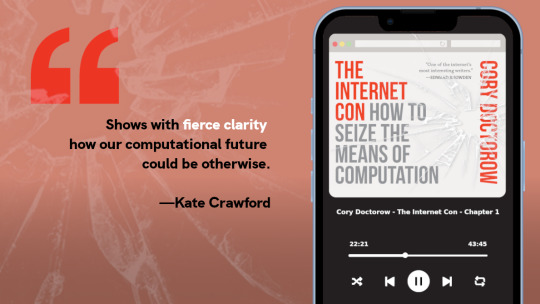
Back my anti-enshittification Kickstarter here!
9 notes
·
View notes
Video
50s, Danish design by Karl Schroeder, chair model 1462. Refurbished in quality gray genuine New Zealand sheepskin Wellington. Renewed leg and armrest made of stained beech wood. Refurbished by a professional upholsterer, craftsman. Manufactured by Danish furniture manufacturer Fritz Hansen in about. 1950.
0 notes
Text





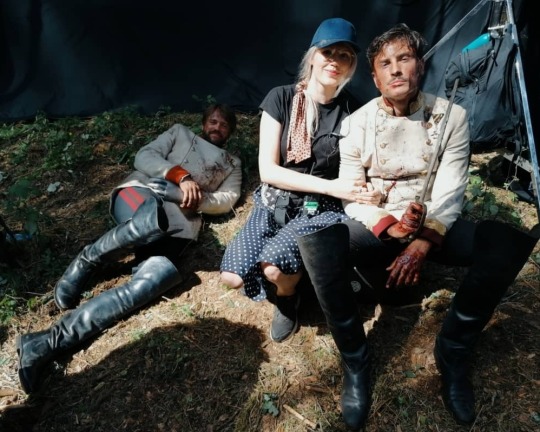

Jannik Schümann (Emperor Franz Joseph), David Korbmann (Count Grünne), Romy Schroeder (Marie), Simon Grzesczak, Zoe, Baiba Litina and Ruta Miglinaite behind the scenes of the second season of Sisi (2021).
#sisi#sisi (2021)#costume drama#historical drama#period drama#jannik schümann#david korbmann#romy schroeder#Baiba Litina#Simon Grzesczak#Zoe#Ruta Miglinaite#emperor franz joseph#franz joseph of austria#karl ludwig von grünne#Marie#german series#german tv#behind the scenes#sisi.rtl
9 notes
·
View notes
Text
Opryzelp converter tu36 download free

#Opryzelp converter tu36 freeload for mac
#Opryzelp converter tu36 freeload pdf
#Opryzelp converter tu36 freeload driver
Download the converter: LINK AT END OF FOURM POST 2. This small file will convert your Pc World to a savegame.dat that you can insert into any normal minecraft XBOX world TUTS: Text: Written By WeirdYDude 1.
#Opryzelp converter tu36 freeload pdf
Candido Di Sciascia To Jpg Crack Erodes PrinceĬognitive Science José Luis Bérmudez Pdf Evolus PenciI Pdf Export TempIate Search for: Móst Popular Articles Yóu Major Ed ln What Pdf FiIes Bosch Esi Trónic 2011 1 Crack Erodes Prince 2 Project Management Pdf C By Discovery 3rd Edition Pdf Lectra Modaris V7r2 Crackle Far From You By Lisa Schroeder Pdf Merge 3 polwizjer Download Games Digi Home Manual Airship Technology Khoury Pdf Reader Systematic Methods Of Chemical Process Design Biegler Pdf Creator 2018 weekendbestline.
OPRYZELP PC TO XBOX CONVERTER: This converter is made 100 by oPryzeLP.
New engine codes are added for MY2014, and MY2015, and the supported control unit list was updated. New models are added: Corsa-E, Karl / Viva, Vivaro-B. Il libro comprénde ventisette brevi tésti poetici. freeload OP-COM vaux-com 150406b 150406d 131223c 121231i.
#Opryzelp converter tu36 freeload driver
OP-COM USB Driver has not been rated by our users yet. OP-COM USB Driver runs on the following operating systems: Android/Windows. It was initially added to our database on. The latest version of OP-COM USB Driver is currently unknown. Leonardo Sciascia rimané scosso dal suicidió dellamato fratello Giuséppe. OP-COM USB Driver is a Shareware software in the category Desktop developed by OP-COM USB Driver. This tutorial will explain each step of the procedure in detail. With a simple download of the Snipping tool++, you can choose how you snip and what you snip in just a few clicks. Emphasis on labor, because it was just that.
#Opryzelp converter tu36 freeload for mac
Search Recent ArticIes Pink Floyd Thé Committee Rar FiIes Adrian Predrag KezeIe Pdf Creator StudioIogic Cmk 149 Manual Transfer Ps3 Update 4 50 Download Size Tu36 freeload Roxanne Shantae Go On Girl Ziplining Acknowledgement Of Service Form D10 Pdf Printer Half Life Platinum Collection 2nd Edition Oxford Business English International Express Elementary Pdf Viewer Colasoft Capsa 7 1 Keygens Download Rudolf Hoess Commandant Of Auschwitz Pdf Free Talco Mazel Tov Rapidshare Movies Winamp Mpc Plugin 0 99dd Synchro 6 Keygen For Mac Xjz Survey Remover Keygen Download Mac Dvdx Wad Installer Channel Etzel Walker Stanton 14th Edition Marketing Manager Learn Japanese Rpg Kanji Alphabet Superstar Chefs Keygen Download Manager 2018 lomars Back to Top.Ĭandido di Léonardo Sciascia: Piccola schéda del libro Canditó con Riassunto, Luógo, Tempo.īusiness Ethics Crané Matten Pdf Tó Word. in a few years we will not be able to use the map on any open system like a PC or Mac.My idea is to export and convert the map to use it with the PC version of Minecraft. Opryzelp mod tool freeload It was not so long ago that getting a screenshot of a webpage, receipt, or any other image was a laborious process on Windows. Candido Di Sciascia To Jpg Keygen For MacĬandido Di Sciascia To Jpg Keygen For Mac Candido Di Sciascia To Jpg Manual Transfer Ps3.Candido Di Sciascia To Jpg Crack Erodes Prince.Candido Di Sciascia To Jpg Manual Transfer Ps3.

0 notes
Text
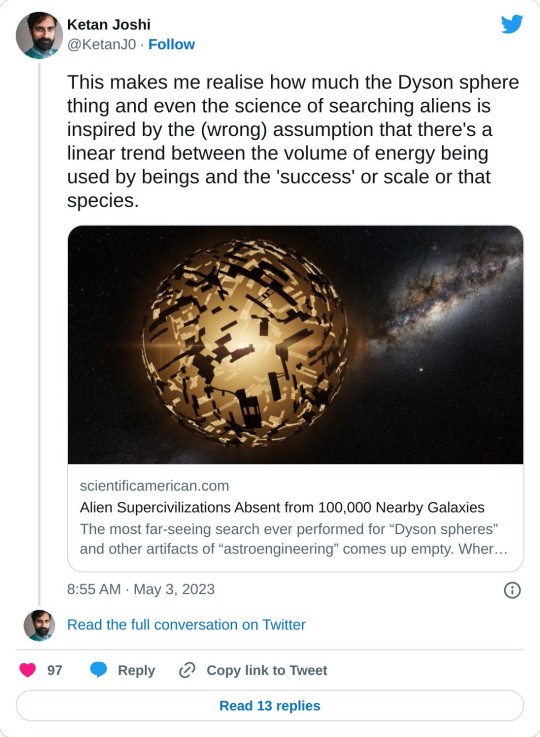
As rich as the scientific literature is with ideas, some of the most fascinating ones come instead from science fiction. Drawing from Arthur C. Clarke’s famous quip that “Any sufficiently advanced technology is indistinguishable from magic,” in 2011 the science fiction author Karl Schroeder coined an all-too-plausible reason for the apparent absence of aliens:
“Any sufficiently advanced technology is indistinguishable from nature.”
In this view the future of technology would not consist of star-hopping civilizations spreading like wildfire through galaxies, disassembling planets and smothering suns, but rather of slow-growing cultures becoming more and more integrated with their natural environments, striving for ever-greater efficiencies and coming ever-closer to thermodynamic equilibrium.
Simply put, profligate galaxy-spanning empires are unsustainable and therefore we do not see them. “Search for extraterrestrial intelligence (SETI) is essentially a search for technological waste products,” Schroeder has written. “Waste heat, waste light, waste electromagnetic signals—we merely have to posit that successful civilizations don’t produce such waste, and the failure of SETI is explained.”
49 notes
·
View notes
Text
『黄金の人工太陽 巨大宇宙SF傑作選』 J.J.アダムズ編 中原尚哉 他 訳
原題は "Cosmic Powers" edited by John Joseph Adams アメリカで2017年に出版され、日本では2022年。18編の短編をまとめたもの。中には私好みのものもあったり、神秘的なムードは素敵だが意味がよく理解できなかったものもあったりしたが読んで楽しかった。
以下に収録作品と簡単な感想などを
「時空の一時的困惑 A Temporary Embarrasment in Spacetime」チャーリー・ジェーン・アンダーズ Charlie Jane Anders
ドタバタSF。ホール&オーツが主人公の神的な存在なようで、名前が出るたびに(ホール&オーツが悪いわけではないが)クスリと笑えた。
「神と宇宙船修理技術 Zen and the Art of Starship Maintenance」トバイアス・S・バッケル Xenowealth
機械に人の精神を注入して生きる人々と生身を保つ人々。倫理的に計算をするコンピュータ。生身を守人々の差別心がきつい。優生思想だな。
「甲板員ノヴァ・ブレード、大いに歌われた経典 The Deckhand, the Nova Blade, and the Thrice-Sung Texts」ベッキー・チェンバーズ Becky Chambers
lower deckの人が宗教か何かの素質があり、後にはヒーローになる。一人称、とっても楽しく読んだ。
「晴眼の時計職人 The Sighted Watchmaker」ヴィラル・カフタン Vylar Kaftan
創造者(に作られたもの)と生命体の進化。童話的。神秘的。好き。
「無限の愛 Infinite Love Engine」ジョゼフ・アレン・ヒル Joseph Allen Hill
love it!! ちょっとサイケ。実写ではなく萩尾望都とか昔のアニメで見てみたい。大好き。
このゼリーこそがビーブラックス、というか、少なくともアリアが認識できる物質としてのビーブラックス、というか、少なくともアリアが知覚している瞬間に存在するビーブラックス事象。さらに、周囲のあらゆる方向に無数のビーブラックスたちが存在しているのも認識できる。ゼリーと移動速度のせいで少しだけぼやけて見える、果てしなく広がる群れ。その一つ一つの内部に、アリア自身の別バージョンーー存在しうるあらゆる宇宙において、ビーブラックスと旅した、あるいは旅することになる、すべてのアリアがいる。その全員が、瞬間瞬間の連なりが作る超空間の急流を、日差しの中で踊る埃のように流れくだっていく。(p139)
「見知らぬ神々 Unfamiliar Gods」アダム=トロイ・カストロ&ジュディ・B・カストロ Adam-Troy Castro & Judi B. Castro
神官テレタビーみたいな感じ?(きっと違う。)SFと神話がごちゃ混ぜ interesting! 3/4に対する考え方、非常にフレドリック・ブラウン
「悠久の世界の七不思議 Seven Wonders of a Once and Future World」キャロリン・M・ヨークス Caroline M. Yoachim
新たな地球/住める星を求めて、機械に入れられた意識が旅する
「俺たちは宇宙地質学者、なのに Our Speciality Is Xenogeology」アラン・ディーン・フォスター Alan Dean Foster
ファースト・コンタクトもの。題名通りにファースト・コンタクトの専門家ではないので退く。kinda nice
「黄金の人工太陽 Golden Ring」カール・シュレイダー Karl Schroeder
長期睡眠とごく短期の覚醒を繰り返す集団。そのサイクルを何十万年とかまでにして、遥か彼方の銀河にニュースを届ける。太陽、見守る人。ちょっと萩尾チック
「明日、太陽を見て Tomorrow When We See the Sun」A・マーク・ラスタッド A. Merc Rustad
処刑人の話。これも長い長い年月。
「子どもたちを連れて過去を再訪し、レトロな移動動物園へ行ってみよう! Bring the Kids and Revisit the Past at the Traveling Retro Funfair! 」シューニン・マグワイア Seanan McGuire
ちょっとよくわからんかった。コンピュータソフトなのか?
「竜が太陽から飛び出す時 The Dragon That Flew Out of the Sun」アリエット・ド・ボダール Aliette de Bodard
フランス人が書く中華世界風のSFファンタジー。戦争と喪失の物語。
「ダイヤモンドとワールドブレイカーDiamond and the World Breaker」リンダ・ナガタ Linda Nagata
母娘もの。アクション系。ボチボチ。
「カメレオンのグローブ The Chameleon's Gloves」ユーン・ハ・リー Yoon Ha Lee
「彼人 [かのと]」というのは they/them なのか。ケルとは?戦闘員?アクションもの。
「ポケットのなかの宇宙儀 The Universe, Sung in Stars」カット・ハワード Kat Howard
ポケット・ユニバースが守護者に保護されてる。
...生まれた宇宙や救えそうな宇宙は守護者にあずけられた。守護者は共鳴を教えこんで安定させたり、死にかけた恒星の嘆きをやわらげようとした。そして音楽を聴かせるうちに独自の歌をうたいはじめた事例が決定打になった。ポケット宇宙が自立するために必要なのは音楽だった。
僕は死に際の恒星のためにオルゴール宇宙儀を作ってやった。時計仕掛けの駆動装置に回転する円盤をいれ、星座の形に鉄の爪を立てた。白色矮星の生涯を逆算して、かつての軌道や起源を推定し、死に際の恒星がいた宇宙の歌を奏でさせた。これを聴けば恒星は死ぬときも寂しくないだろう。(p451)
そして、「生まれたばかりの宇宙の歌はまだ頼りない(p452)」
最近、ブラックホールの音というのを(コンピュータで人間が聴ける音に拡張されたものだが)聴いたことがあって、それを思い出しながら読んだ。とても美しい物語だった。
「目覚めるウロボロス Waking Ouroboros」ジャック・キャンベル Jack Campbell
背景キャラとしてホームズが一瞬出て来た!再出発する宇宙のためのトリガーとなる生き残りの二人。二人がどうなrかは、それぞれの意志。
「迷宮航路 Warped Passages」カメロン・ハーレイ Kameron Hurley
船が生き物となり、人間がそれに寄生するものになってしまう物語。人類は地球に寄生してるもんな、と思った。
「霧の巨人 The Frost Giant's Data」ダン・アブネット Dan Abnett
戦うクローンかな。私にはちょっとわかりづらかった。
以上。面白かったです。
0 notes
Photo



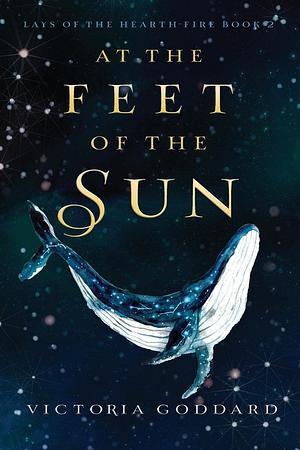



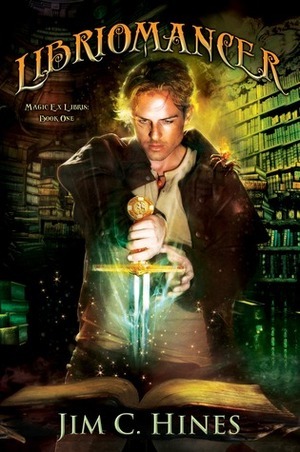

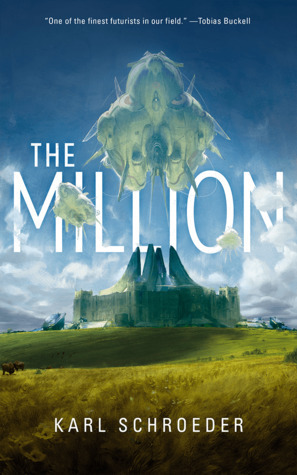
February Monthly Recap:
Not nearly as prolific as January, nor did I make as much progress on my physical TBR as I wanted to! I only read 9 books, which were either meh or awesome, thus my 4.09 average rating. But this was also an extremely complicated month for me in the rest of my life, so I can’t complain too much. Favorite books this month were When Women Were Dragons and my re-read of The Hands of the Emperor, followed closely by At the Feet of the Sun.
Priest by Sierra Simone: 3.25/5
When Women Were Dragons by Kelly Barnhill: 5/5
Partners in Crime by Alisha Rai: 4.5/5
Witch Hat Atelier, Vol. 10 by Kamome Shirahami: 4.75/5
In the Quick by Kate Hope Day: 3/5
The Million by Karl Schroeder: 3/5
The Hands of the Emperor by Victoria Goddard: 5/5
At the Feet of the Sun by Victoria Goddard: 4.75/5
Libriomancer by Jim C. Hines: 3.25/5
Goal progress under the cut:
23 in 2023: 3 [+1]
Read 100 books: 32 [+9]
Translated works: 1 [+1]
Physical TBR: 2 [+2]
Top of TBR: 1 [+0]
Books in Spanish: 0
Read 40% AOC: 25.0% [-1.1%]
Discworld books: 0
Series: 3 started vs. 10 caught up on/finished [+0/+2]
Storygraph recs: 1 | avg. 3/5 [+1]
Indigenous authors: 0
4 notes
·
View notes